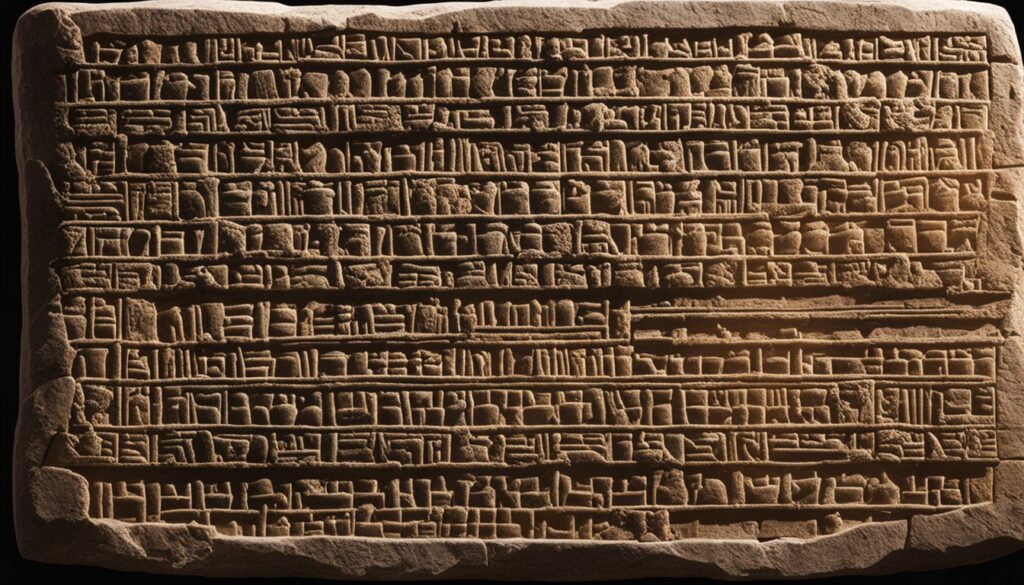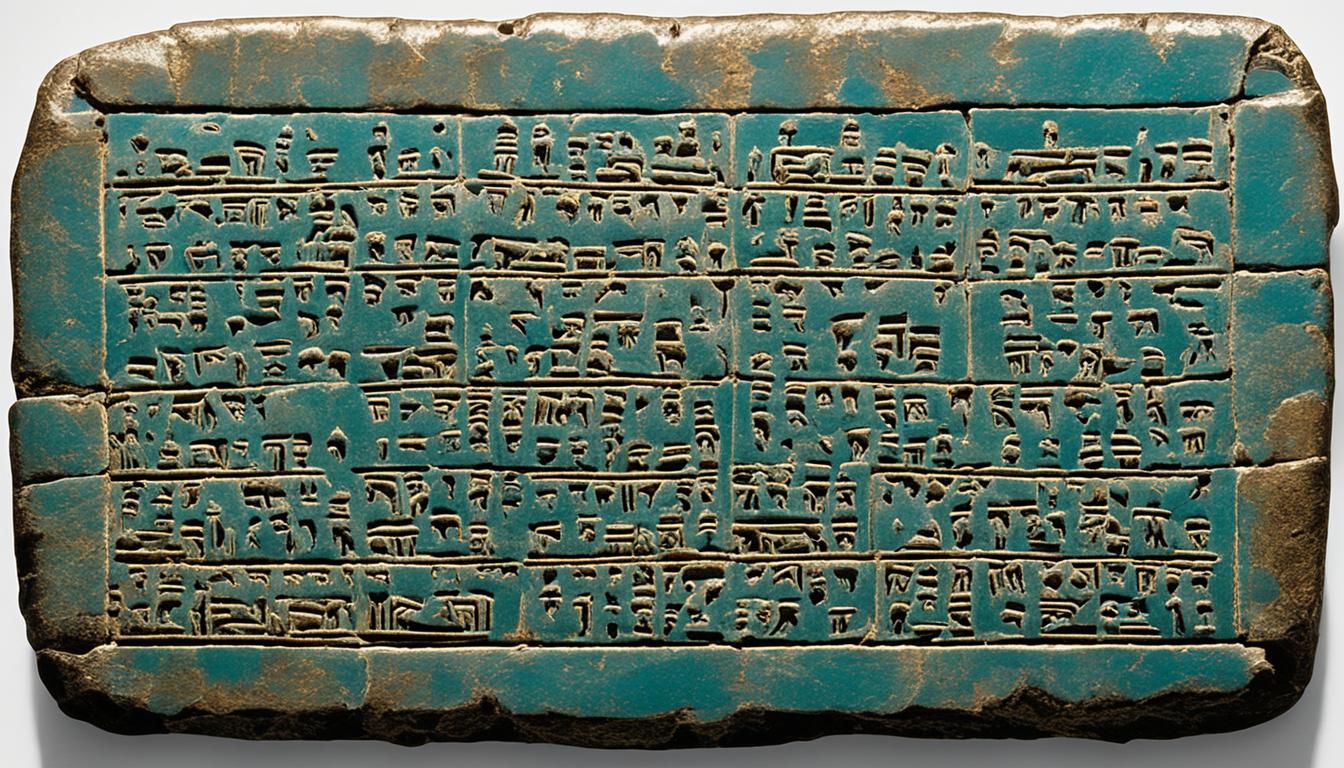In ancient Mesopotamia, a long-standing issue emerged that still affects us today. The oldest customer complaint was recorded on a cuneiform tablet in 1750 BCE. This complaint, kept for thousands of years, shows how customer dissatisfaction has always been a part of life.
A clay tablet found in Ur’s ruins tells of a disagreement between a buyer and seller. It gives us a peek into trade in Babylonian times. The fact that this tablet has lasted shows that customer complaints have been a big part of trade since the beginning.
Key Takeaways
- The world’s oldest customer complaint is from 1750 BCE
- It was found on a cuneiform tablet in ancient Mesopotamia
- The complaint details a dispute over copper ingots
- The artifact is now housed in the British Museum
- It provides insight into ancient commercial practices
- Customer complaints have existed for nearly 4,000 years
Discovering the Ancient Tablet: Oldest Customer Complaint
Sir Leonard Woolley made a big find in 1922-1934. He was digging in Ur and found a clay tablet. This tablet had the oldest known customer complaint.
This complaint was written in cuneiform and was found in a Babylonian merchant’s home. It shows how unhappy customers have been for thousands of years.
The British Museum saw how important this find was and got it in 1953. Now, it’s known as object W 1953-0411-71. People can see it and learn about old business ways.
Woolley’s team found many documents about old businesses. The customer complaint tablet is a special look back in time. It shows that people have always had complaints about products and services.
Learn more about this at https://historyandmystery.org/interesting-history/americas-independence-was-actually-declared-on-july-2nd/.
Decoding the Message: Content and Translation

This ancient text, translated from Akkadian cuneiform, talks about a customer complaint that sounds very modern. Scholars like A. Leo Oppenheim and W. F. Leemans have worked hard to understand this important find.
Nanni is upset with Ea-nāṣir for selling low-quality copper ingots and poor customer service. He’s unhappy with how his messengers were treated. He warns that he will check future deliveries very closely. He even says he might not accept goods that don’t meet his standards.
This old text shows us that some customer and merchant problems are still the same today. Issues like product quality, not meeting expectations, and bad service are still common. The tablet reminds us that even though technology has changed, people and business problems haven’t changed much over time.
The Merchant Ea-nāṣir: A Babylonian Businessman
Ea-nāṣir was a copper merchant in ancient Mesopotamia. He was part of the Dilmun traders, a key group in the trade network. During Rim-Sîn I’s rule in Larsa, Ea-nāṣir worked.
Archaeologists found many clay tablets in Ea-nāṣir’s home. These tablets reveal his business dealings. They show that many customers were unhappy with him.
Customers complained about late deliveries and poor-quality copper. This shows Ea-nāṣir’s business wasn’t always good.
The tablets give us a peek into ancient commerce. They show that merchants then faced similar issues. Ea-nāṣir’s story tells us about ongoing customer dissatisfaction that lasts for thousands of years.
Ea-nāṣir’s legacy as a copper merchant shows the importance of customer satisfaction. His story tells us that business ethics matter, even in ancient times. It reminds us that some business challenges are timeless.
Legacy and Modern Relevance of the Ancient Grievance
The Ea-nāṣir tablet is a key part of customer service history. It holds the Guinness World Record for the oldest known customer complaint. This shows how little has changed in business over thousands of years.
Today, people see the tablet’s message as very relevant. Nanni’s complaint from ancient times mirrors modern customer service problems. This connection has made the tablet popular online, leading to talks on business ethics through time.
The tablet’s message from long ago reminds us of something important. Meeting customer needs has always been key in business. From ancient Babylon to our digital age, the principles of good customer service stay the same. This lesson teaches us about the importance of understanding customers and their needs.

Leave a Reply